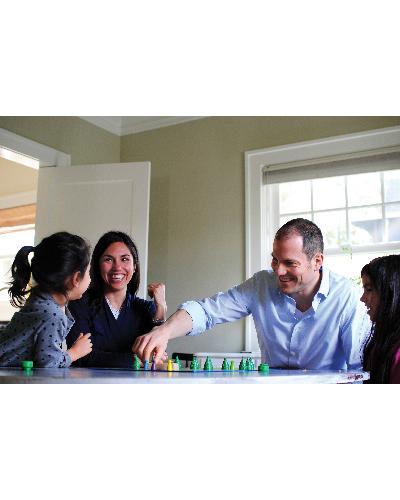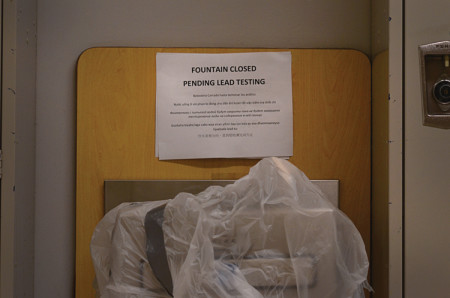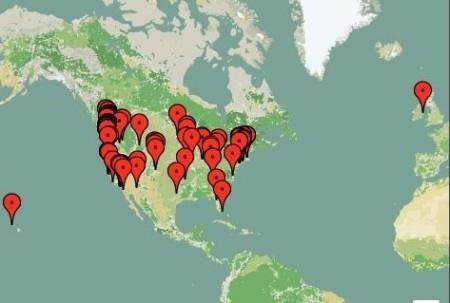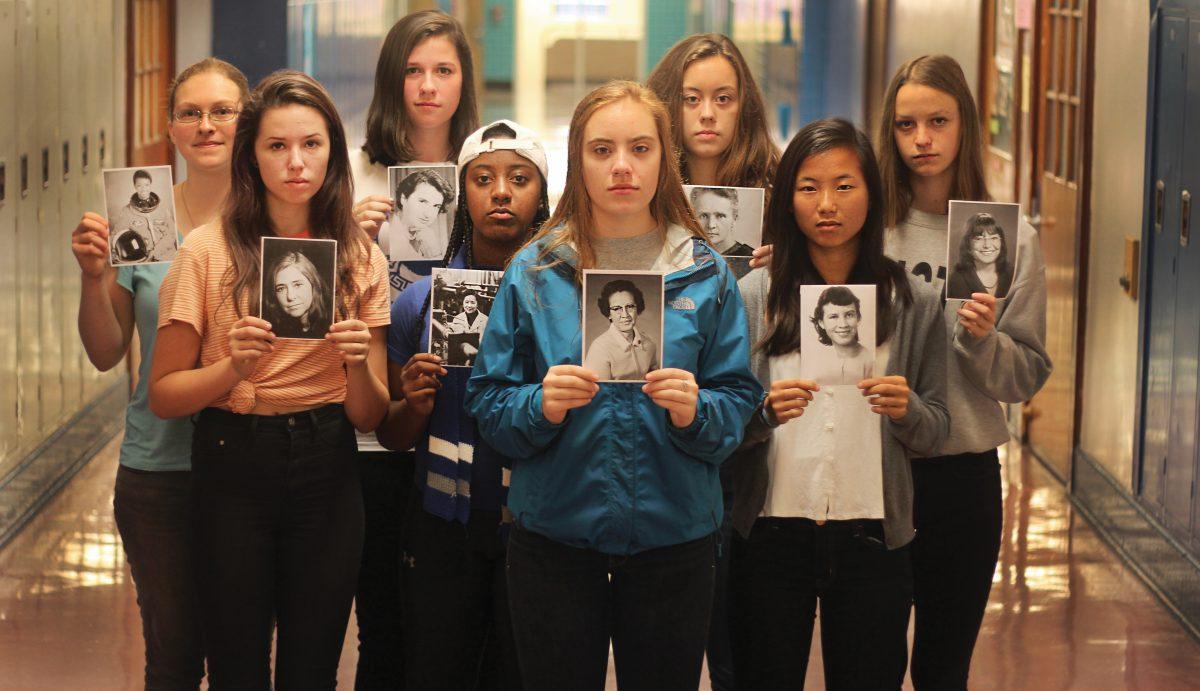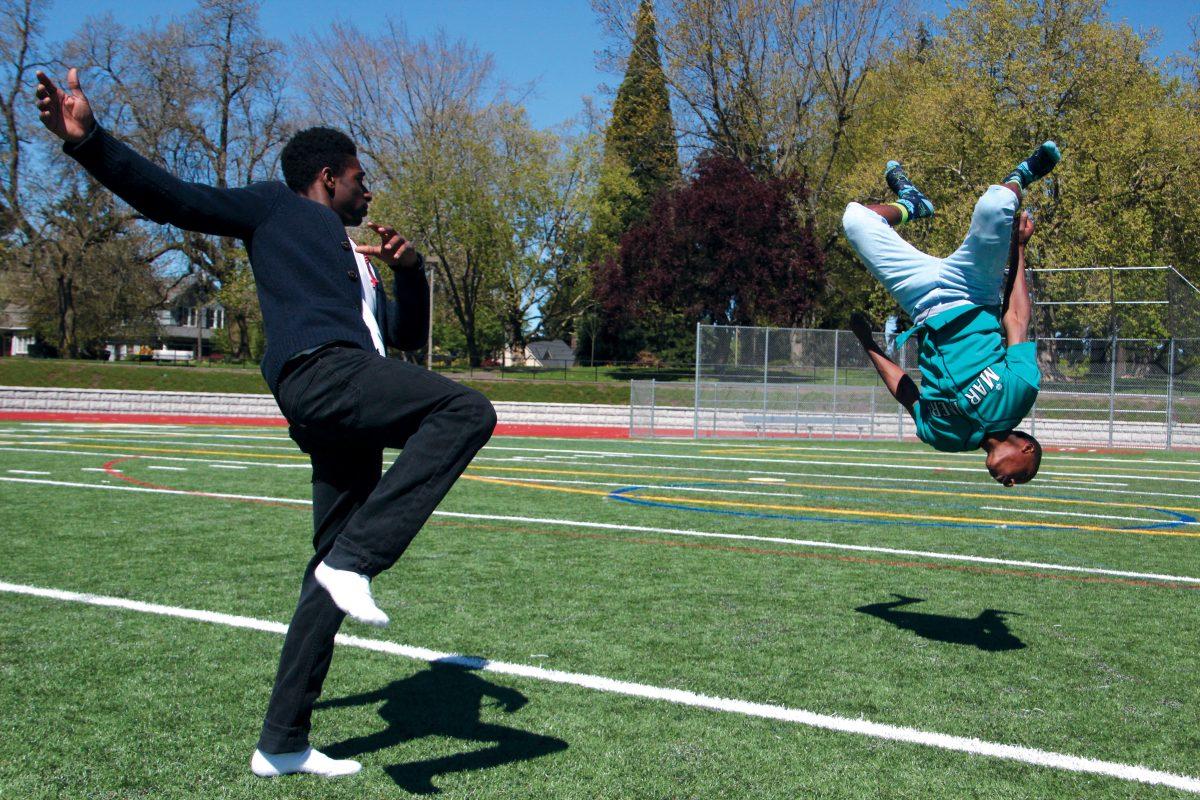[powr-map label=”Enter a Label”]
Each morning, students file inside the doors of Grant High School and catch their last moments of peace before starting the school day. The bell ushers everyone to their classrooms and the halls fall silent as students begin their work.
Just across the street, the houses that surround the school also bustle with life, as the neighbors who coexist with one of Portland’s largest high schools start their days as well.
There’s the local philanthropist, businessman and Grant track coach; a resident art professor from Pakistan; a physician from India; a couple whose home business has flourished internationally; and a city official who came to America without knowing a word of English.
Most say living adjacent to a lively high school community has its ups and downs. But overall, the neighbors say they can make do. These are some of their stories.
The Business of Running
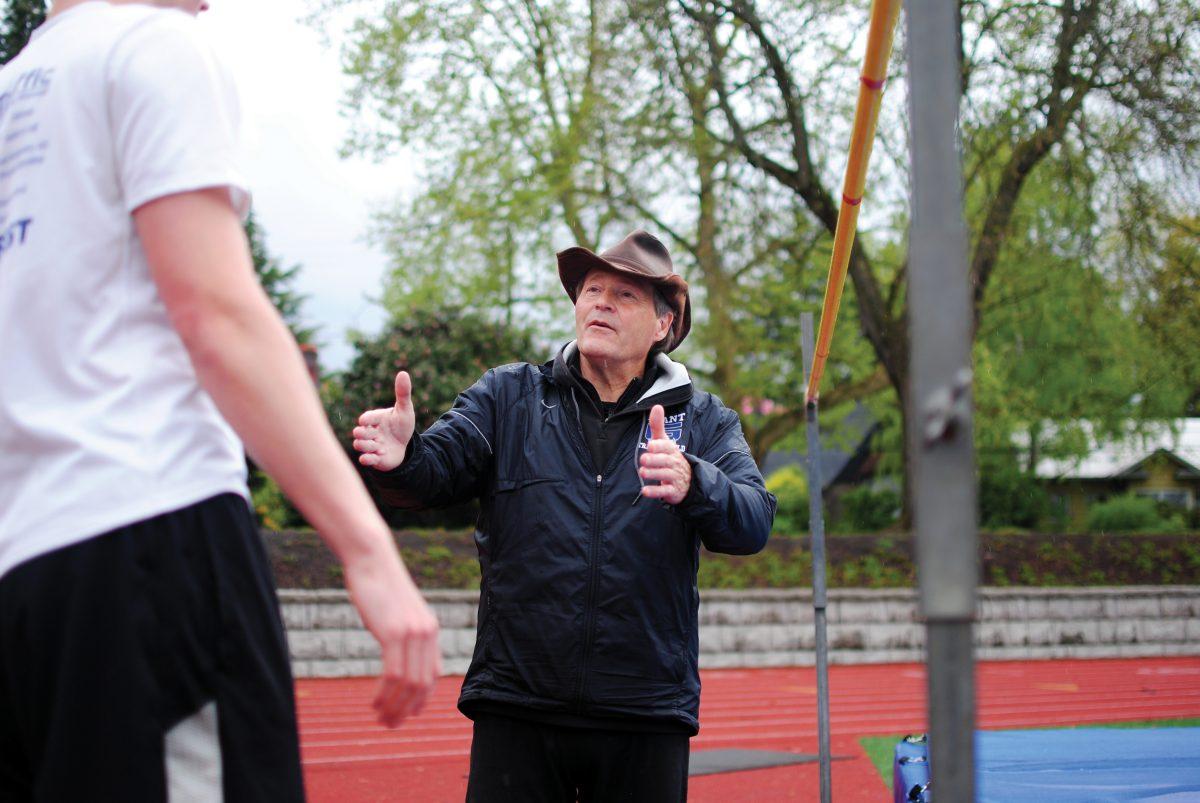
David Pietka marches around Grant’s track, shouting instructions into his microphone. On one corner, a new event starts. Pietka’s voice rings across the field as the kids line up. A short whistle blast later and they’re off. He marches back across the field, ready to tackle whatever tasks are at hand.
Such is the scene of the Portland Parks & Recreation All-Comer Meet, a track and field event open to the community. It is organized by Pietka, a 64-year-old Grant Park resident, something he’s been doing for nearly two decades. In 1994, he felt the meet wasn’t being run properly. He approached the director and
said, “This can be done better. Who do I talk to?”
Pietka’s motto? “Make things better.”
Pietka has his hands in everything. He has stake in several Portland businesses and is the founder and owner of Foot Traffic. He is marked by ambition, but also values giving back. He runs all of the All-Comer track meets at Grant, 13 each year, and he coaches high jump for Grant’s high school track and field team.
Growing up in a middle-class family in Eugene, Pietka threw himself into athletics. For him, they served as a platform for success and he was even ranked fifth in the state for long jump at South Eugene High School.
But with winning, according to Pietka, “there are always two responses. You want to celebrate a little, but you always need to look forward for something to accomplish.”
His parents supported his success, but made sure he stayed on top of his household duties. Pietka remembers one evening at the dinner table asking his father if he could quit playing the accordion – something required of each of the four
Pietka children – and focus more on basketball.
“He said, ‘David, sometimes you have to do some things you don’t want to do!’” Pietka recalls.
Those words stuck with him through college and into the real world.
After graduating from the University of Oregon in 1973, Pietka moved on to graduate school at the University of Wisconsin-Madison. Eventually, he moved to Portland, and in 1978 founded an appraisal firm and raised his three kids. But in 2000, Pietka decided he
wanted a change and sold his share in the company.
Although he was jobless, Pietka knew what he wanted to do. Northeast Portland needed a shoe store and he had a history with track and field. The perfect mix spawned Foot Traffic, a running and walking retail shoe store across the street from Beaumont Middle School.
“Starting a business is extremely difficult,” says Pietka. “It takes time. It takes passion. It takes ambition.”
Today, Foot Traffic has expanded to three locations throughout Portland, with a fourth opening in Southwest Portland later this spring. Now that his business career is slowing down, Pietka can give back more.
Foot Traffic has allowed him to stay involved in track and field. “You always got to accomplish things, and if you’re not accomplishing things, there’s not much left to life.”
To Pietka, Grant Park is more than a grove of trees, a couple of fields and a swimming pool. It’s a community that has been built up with the help of its members.
“It’s like my own private country club,” Pietka says. “Minus the fees.”
Coaches for Life
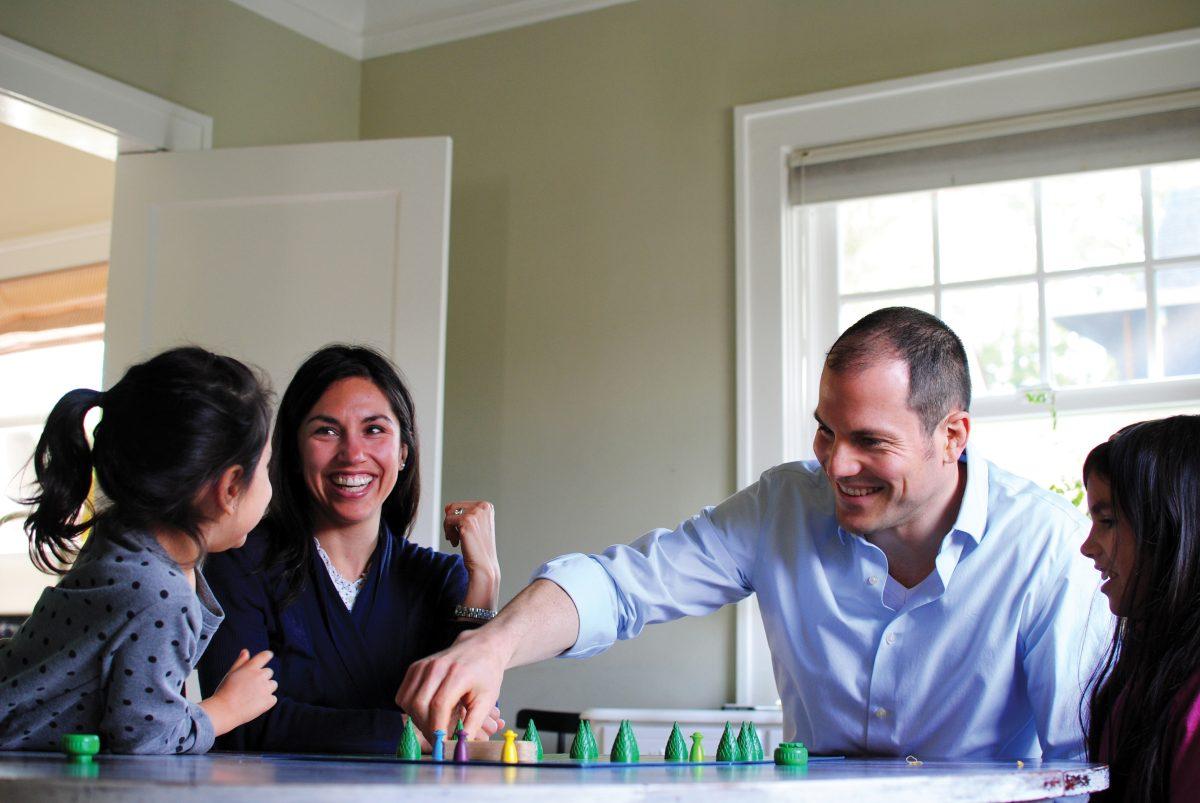
The Williams household doubles as a business headquarters and triples as an elementary school. Upstairs at a window overlooking Grant, John Andrew Williams perches in a chair in front of his computer. Equipped with a headset, he’s busy running video conferences and web seminars with an international array of clients; each listener’s face is fixed within a rectangle on the screen.
Williams, 35, is running his company, Academic Life Coaching, which he founded in 2005. “You see these beautiful faces from all over the world, and you see the sun setting at different times,” he says.
Downstairs in the basement-turned-classroom, his wife, Amois Williams, begins the school day with their two daughters. Their 7-year-old reads aloud from an enormous history textbook, while their 5-year-old practices penmanship across the room beside the aquarium. On the ground level, company employees are immersed in their work, as the family dachshund scurries around.
“It’s like a zoo around here,” the 34-year-old Amois says with a laugh. “There’s a lot going on.”
The Brown University graduates are husband and wife, parents, teachers and business partners. Their home-operated company has seen vast growth since its inception. The business began as a small life-coaching startup, with a mission to improve clients’ quality of life by advising them on professional and
personal matters.
Now, it’s a life-coach-training enterprise, reaching more than 30 countries, including Dubai, Brazil, the Dominican Republic and South Africa. John Williams has published four life-coaching books and has been featured on CNN, in The Huffington Post and other news media outlets.
“Academic content is relatively cheap because you can get it through Google searches, but if you look at personal development, that’s priceless,” John says.
He grew up in Pittsburgh, and spent his summers picking corn and tomatoes on a farm. Amois grew up in Jacksonville in southern Oregon. She was one of the first in her family to go to college. They met during their freshman year at Brown.
A turning point came when Amois introduced John to life coaching. Now, John works to combat flaws he sees in the education system.
“That the classroom looks the same way it did 100 years ago is increasingly a problem,” he says. He relates the system to a factory. It “looks at human beings as products going down a linear line, which is simply not the way people are.”
In 2013, the Williams family settled down on Northeast 36th Avenue, across the street from the school. They say the neighborhood is an ideal place to homeschool children. Every morning at 8:30 a.m., Amois begins teaching. It’s class time until noon, then she and her young daughters venture outside. They participate in many activities, including ballet, choir and theater.
“We work from home,” she says. “We’re all here and it felt like a natural fit. It felt kind of odd to be sending the kids off when we’re at home.”
Aside from the litter and teenage-driving, the couple has only great things to say about living so close to Grant.
“It’s like a parade of teenagers every day. Our kids are always fascinated,” she says. “We’re here a lot, so we definitely experience the flow of the high school. We hear the bells ringing, we see the
kids and we always know when it’s lunchtime.”
Blending the Lines
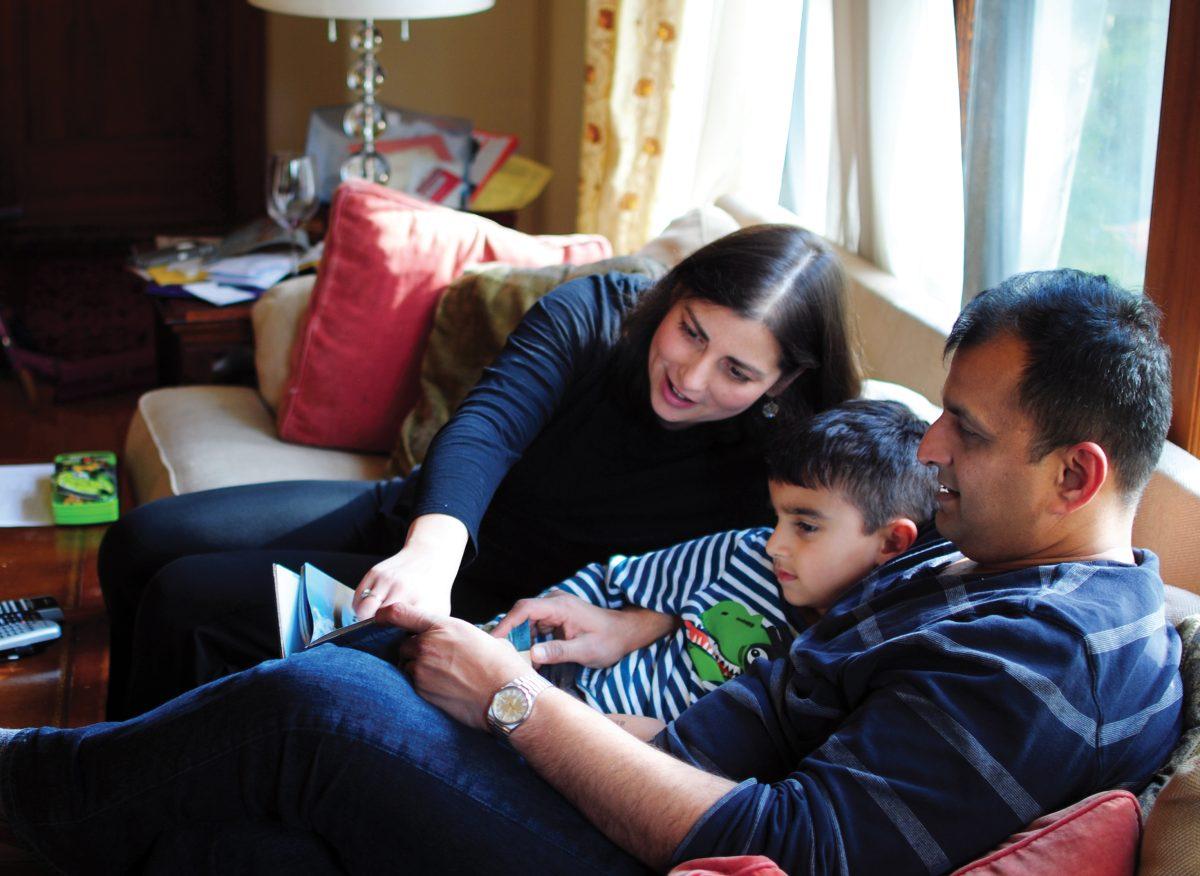
Sabina Haque hates seeing the media strip away Pakistan’s humanity. After growing up in Karachi, she attempts to fill in the blanks using her artwork.
“We don’t think about nature and we don’t think about beauty when we think about Pakistan,” says Haque, who came to America at age 17. “We think about terrorism and death and destruction. We only hear one story.”
For her series “Nishana: War Games,” she prints aerial Call of Duty maps of her hometown onto canvas. Then, she brings the maps to life with art, superimposing colorful oil paint until the image no longer portrays her country as a one-dimensional, murderous wasteland.
Haque, 40, is a decorated artist and Fine Arts professor at Portland State University. Her husband, Hussain Lakdawalla, was born and raised in Mumbai, India. While her husband works as an anesthesiologist, Haque has dedicated much of her life using art to shattering cultural barriers with her artwork.
“We’re more similar than we are different, yet it’s the differences that can tear us apart,” she says. “I want to break those boxes because they’re really just constructs.”
At age 15, Haque revealed to her father her plans to study art in America. He disapproved, and insisted that she stay home and get married. She had other plans.
Haque’s friends helped pay to send her art portfolio to colleges. After graduating from Smith College in Boston, she earned her master’s degree in Fine Arts from Boston University in 1998.
Today, with Indian and Pakistani roots, the family prides itself on being so multicultural. A blend of Muslim, Buddhist and Christian energy is carried throughout the couple’s home. Their children – Sofia, 8, and Sumair, 5 – learn Japanese at Richmond Elementary in an immersion program. They travel as much as possible and visit Pakistan every Christmas. Still, Haque continues to work for her beliefs.
This May, Haque is delivering a TEDx talk on art and identity. She has volunteered at seven schools in the Northeast Portland area, providing opportunities to work on group art projects. She has brought her PSU art students to schools such as Fernwood, Grant and Scott.
“My view of my work and my practice and my life is to bring disparate communities together,” she says.
She makes it a priority to share this with children. She also spent time working in West Virginia at a facility for troubled youths.
Haque and Lakdawalla came to the Grant neighborhood nine years ago in search of a nice area with a strong school system in order to raise children. With their residence located directly across from Grant on Northeast 36th Avenue, the family has had to deal with garbage and parking issues, but they all appreciate the atmosphere.
Lakdawalla, who grew up in the most populous city of India (now known as Mumbai), likes how the high school emulates the environment of home. “There’s a lot of hustle bustle, and we like that part,” he says.
Made in America: a Dutch Immigrant’s Rise to Success
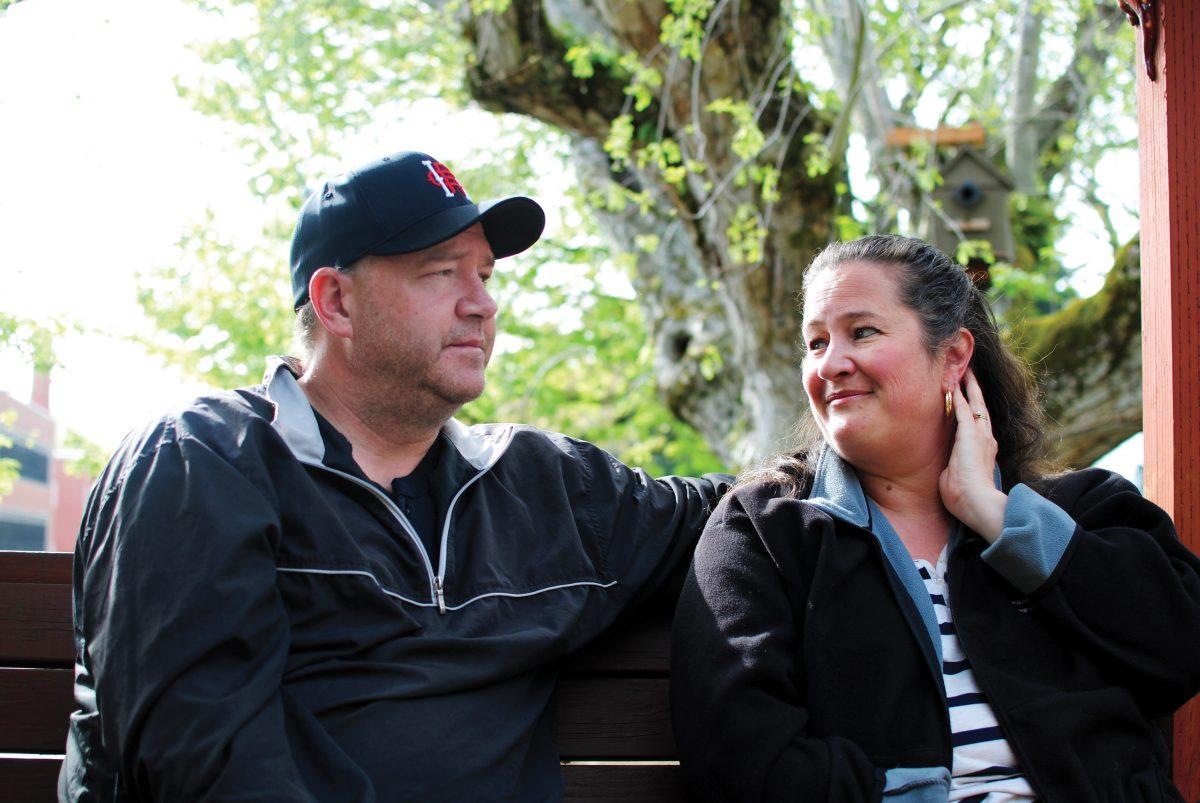
Bob Leek came to the United States without knowing a word of English. Born in a small house in Anna Paulowna, a small Dutch town, Leek and his family immigrated to the United States when he was 4. He grew up in the foothills of North Carolina in a small town known as Mount Airy.
Today, he works for Multnomah County as the deputy chief information officer, and he manages more than 160 employees.
As a kid, Leek quickly integrated into American life. “I learned English two ways,” Leek says. “One, my friends walked me around and pointed and said, ‘Rock, tree, bird.’ And the other way was by watching Sesame Street.”
Several months after moving to America, Leek learned enough English to attend pre-school.
“The community was really close knit,” he remembers. “If you wanted to play baseball, you grabbed five or six guys and played baseball. There was always a game because all you had to do was go around the neighborhood.”
Although they were living in the classic American town, the Leeks retained some of their Dutch culture and returned to the Netherlands several times.
“We did for a long time hold on to the time around Christmas,” says Leek, 45. “You leave out your wooden shoes and they are filled with candy and little goodies.”
Things did fade, however, and by the time he graduated high school, Leek had adopted a bonafide Southern accent. He eventually worked to get rid of his lilt after moving from the South.
Leek attended Berry College in Rome, Ga. After graduation he moved to Atlanta and worked various jobs before meeting his future wife, Heather.
“We met at a bachelorette party,” recalls Heather, 50. “I was out with a girlfriend of mine, and he was talking to her, and she pointed me out and said, ‘Oh, she’s single,’ and that’s all she wrote. We went on a date a week later.”
The Leeks got married in Tacoma, Wash. in 1999, and moved to Spokane, Wash, shortly after. In Spokane, Leek began working as an accountant for Egghead Software, a retail store. But his job description soon changed gears.
“I complained about the IT organization so much,” Leek recalls. “The director of the IT department took me into his office and said, ‘You think you can do it better? Go fix it.’ I brought with me from accounting what it is that would make us successful and worked with IT to make sure they were doing the right work.”
In 2001, Leek and his family moved to Portland and he continued to work in the IT arena. In 2013, he began working for the county. Because of his experiences, he makes it a personal objective to set up each of his employees for success. “I have been helped in my career by a handful of people and it’s taught me a set of values that others are more important than me,” Leek says. “So I get to help 160 people be successful.”
He and his wife settled into their house on 36th Avenue with their kids, Sophia, 14; Coulter, 11; and Kees, 9. Leek says he and his wife were attracted to the park, as well as the activity that comes with living next to a high school. ◊





























